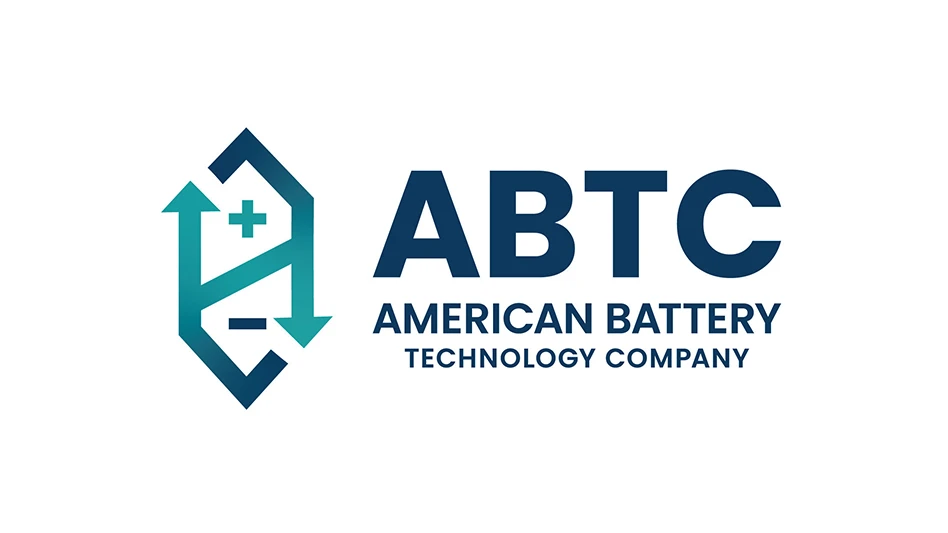Ferrous scrap processing requires space. Lots of space. Grossman Bros., Milwaukee, has figured out how to have enough space for both ferrous and nonferrous scrap processing within an enclosed, environmentally-controlled 15,000-square-foot building, avoiding problems with stormwater runoff and other environmental issues, while being able to operate 24 hours a day under all weather conditions. Not a small accomplishment.
Grossman Bros., which handles tin and lead based babbitt, steel scrap, copper, aluminum, stainless steel and nickel alloys, features an overhead crane, shears, babbitt furnaces and aluminum furnaces – all under roof.
As far as the president, Art Grossman, is aware, the company is the only ferrous scrap processor in the Midwest – and one of the handful in the U.S. – to operate completely indoors.
The company was formed in 1916 by Art Grossman’s grandfather Frank Grossman, and his brother Pete Grossman. In 1946, Grossman’s father Tom joined the company, and in 1955, his uncle Gordon. Art Grossman started with the family business in 1970.
Like numerous others in the scrap business, Frank was an immigrant who started out with modest means.
"One horse and one buggy was enough to start his living," says Art Grossman. "At that time, he was one of the first to start recycling. Now, of course, there are hundreds of recyclers, especially in Wisconsin."
EXPANSION
Between 1990 and 1992, Grossman Bros. completely outgrew the facility it had occupied for some 75 years, according to Art Grossman.
"We had, over the previous ten years, bought different acreages all around us, and we were landlocked," says Grossman. It was time to look for a new facility.
The company was spending considerable amounts in labor costs moving its nonferrous operation outside every morning, and then back inside every night, which was an incentive to look for a building with an indoor crane, he explains.
In addition, because of the harsh Midwestern winters, employees spent several hours in the morning after snowstorms to shovel the snow, get the equipment going, and unfreeze the crane, he says.
"We were losing a lot of productivity," says Grossman. "If I added up an hour for every employee to shovel and to clean out by the machinery and de-ice the cranes and so on, it was a major cost every year."
During a three-year period, Grossman looked at 50 to 100 buildings, finally settling on the current facility, which formerly housed Press Steel Cylinder and had been sitting vacant for six years.
The site is 115,000 square feet of warehouse, including 15,000 square feet of offices, on about 10 acres of land.
"When I first saw the building, it was vacant, and it was the best building I’d ever seen for a scrap operation," says Grossman, "mainly because the overhead crane was about 40 feet above the concrete floor, so I could have dump trailers come in and dump, I could get railroad cars inside the facility to load and unload. I saw great possibilities here."
Once he purchased the building, Grossman sat down with pen and paper, and figured out the optimal setup for the building, serving as his own general contractor and thus reducing costs substantially.
"I saved 10 percent because I was my own general contractor," he explains. "I flew around the country and saw different operations, different people doing some of the same things that we’ve done. And I just sat down and reevaluated what I wanted, what we wanted to do, where the expansion was coming from, and basically rehabilitated the offices accordingly."
Administrative offices oversee the scale, and contain picture windows into the warehouse along with security cameras, so Grossman can oversee the entire operation from his desk if necessary.
"It took me about eight months to totally revamp the building," he explains. "We skinned the outside of the building to make it look presentable, we did some landscaping, and we fulfilled the 12 contingencies the Village of West Milwaukee required for an industrial recycling permit ... The big key to them was that no scrap be seen from the front street, and if you drive up to our facility, we are organized so that no scrap can be seen from the front of the building."
CITY CHALLENGE
Grossman faced a special challenge when he went before the West Milwaukee Board of Appeals – flat opposition from the president of the board.
"His opening remarks, after he said ‘welcome Mr. Grossman,’ were that he was going to do everything possible to keep us out of the Village of West Milwaukee. They didn’t want anyone in recycling because they felt it was a mess," says Grossman.
Fortunately, one of the aldermen was a staunch defender of the recycling company, emphasizing that the company would create jobs, renovate an abandoned facility, and add to the local tax base.
So with some stringent contingencies, and three hours of debate, Grossman Bros. was allowed to locate there.
After the company moved in, says Grossman, the president of the board called to welcome them to West Milwaukee. Grossman invited him to tour the facility.
"I showed him around the facility," he says. "He later wrote me a letter saying what a great job we did, and that it’s wonderful having us in West Milwaukee, and more or less apologizing for what he had said. So now the Village loves me."
Grossman Bros. has spent one full winter so far in the covered facility, he explains, and the company was able to put large numbers of employees to work inside the facility during inclement weather.
"They came in from a snowstorm and worked in the dry facility in here," he says.
"Our productivity went up 25 percent last year, and our sales went up tremendously. It’s just an unbelievable situation. I don’t have to worry about some of the environmental regulations such as stormwater runoff and groundwater. We’re inside, so we don’t have that problem that everybody else has outside. The working conditions are terrific."
The company has grown from 25 employees when the company moved to the new location, to almost 40, says Grossman.
"We’ve expanded, have put extra trucks on the road, have put extra people here – we’re running two shifts where we never ran more than one shift before."
Grossman set up the machinery in both his ferrous and nonferrous operations with an eye towards avoiding double handling.
"Unfortunately, we’ve been here about two years, and we are already utilizing the entire building," he says. "We’ve expanded enough that I’m sorry we didn’t buy a bigger building. But as long as we can move the material in and out on a timely basis, we’re okay."
The facility also features three acres behind the warehouse, where the company has a rail processing operation, along with some storage of ferrous materials that don’t require much processing.
Grossman stores about 1,000 tons of rail outside.
In the spirit of self-reliance for which the scrap industry is known, Grossman was able to move every piece of equipment except two to the new facility himself, working with an electrical contractor and the company’s own trucks and employees.
"My total moving cost, out of pocket, was less than $1,000," says Grossman. "The electrician would unhook a piece of machinery at 7 in the morning, we would move it up here, he would install it, and it would be running the next day.
"No piece of equipment was down for more than 24 hours ... As the machinery was brought over, the manpower was brought over, so within a week’s period, we had everybody here. The old facility now is totally cleaned."
ENVIRONMENTALLY CLEAN
When asked about his ability to be his own general contractor and put together an unusual type of scrap processing facility, Grossman credits his "knowledge of the last 25 years and the next 10 to 15 years," as the industry moves into an era with increased emphasis on numerous environmental regulations.
"Now you’re talking about a whole different ballgame," he says. "Twenty-five years ago, nobody ever heard of environmental regulations. Nobody ever heard of stormwater runoff or the Department of Natural Resources, or felt they had anything to do with the scrap business."
George Meyer, the head of the Wisconsin DNR, toured the facility last winter, says Grossman, and was enthusiastic.
"We have subsequently given other people from the DNR tours of our plant," he says. "There have been state senators, and so on, that have gone through this plant, and we had an open house for all of our customers last summer. We have an environmentally clean facility. It was passed by the DNR, it was passed by the EPA -- we have no environmental problems here."
Air pollution, which could potentially be a problem in an indoor facility, has been taken care of by the building’s five ventilating systems, says Grossman.
"We put in an air filtering system in our babbitt area for our four furnaces, which cleans out all of the smoke from our furnaces and purifies it, and the bad elements go into a baghouse. Anything clean gets exhausted through the filtering system and the afterburners. Our aluminum furnaces have three afterburners so everything is totally clean before it’s exhausted."
Wisconsin is one of the most environmentally-strict states in the U.S., says Grossman, but the state has generally been fair in its treatment of the scrap industry, he adds.
"They are one of the leaders in the U.S. as far as watching the scrap dealers, being on top of the situation. I’m on the legislative committee for ISRI for Wisconsin, and we’ve had many meetings with people from the DNR and EPA in Madison, and they have been more than fair. They’re trying to set up a working relationship so that we can help them and they can help us. That’s why we’ve had people through this facility – to see what I’ve done and to give me any ideas of things we should be doing. I’m always looking for improvements."
To comply with environmental regulations in the future, most scrap processing facilities will have to either lay down yards of concrete or put the facility indoors under roof, according to Grossman.
"I think that’s what it’s going to come to. They’re both expensive, but putting a roof over it is probably more expensive. Scrap dealers should open up a concrete company – they could make a lot of money," he quips.
Increasing environmental regulations will change the way business is done over the next few years by knocking the smaller dealers out of the running, says Grossman, because they may not be able to afford some of the upgrades necessary to stay in compliance.
"The writing’s on the wall – in the last 10 years we’ve seen scrap dealers either close their doors or sell out to the bigger ones. We’ve bought out some companies, and so have some of the other dealers in town, and I think that’s what’s going to happen in the future. Milwaukee could go from 15 to five scrap dealers.
"I think that’s going to happen all around the country – scrap processors who can afford to do what has to be done environmentally will be the ones who can survive. (The regulatory situation) is only going to get worse."
FINDING NICHES
Grossman Bros. makes aluminum sows, as well as having one of the few babbitt operations among scrap dealers in the Midwest, says Grossman.
The company ships around the entire U.S., and does all of its own ingoting.
"We started with one furnace at the old operation and now we are running four here," he says.
"We have our own copper chopping operation, and we are one of the biggest rail operations in the city. My feeling is, when we expanded here, that you have to do things that nobody else around is doing. You have to have your own niches, and we have three or four of those here."
Babbitt is a specialty alloy; it’s tin or lead based, and is often used in the bearing industry for linings of bearings. "We have our own babbitt customers from across the U.S.," says Grossman.
"They send us their babbitt, and we reanalyze it for them. Then they have three choices: we can re-alloy it into pigs and send it back to them; we can buy it from them; or we can just send it back to them."
Grossman Bros. chose these particular materials in order to enhance the company’s competitiveness, he adds. "Before we were just in ferrous and we couldn’t be competitive in the city."
The company owns its own fleet of trucks, tractor-trailers which run into five states. "It’s cost-effective because we’re running them loaded both ways," says Grossman.
Grossman Bros. will be upgrading various aspects of its operations, according to Grossman, including upgrading both its copper chopping operation and its babbitt smelting operation.
"We are going to be putting in a second filtering system just to be safer than we are already. The state requires all our furnace operators to take tests twice a year as far as lead contaminants, and we make them take it four times a year just to be safe. We are also going to invest in larger equipment – guillotine shears – for our ferrous operation."
Grossman Bros. buys thousands of tons of scrap every month from industrial accounts and other scrap dealers.
The company doesn’t deal with post-consumer scrap, by choice, and sells materials to steel mills, smelters and foundries.
"We buy and sell scrap metals in Texas, Utah, California, Maine, and all across the Midwest," according to Grossman.
"Our scope is very broad. If it’s too far for our trucks, then it gets shipped by common carrier. Our trucks basically operate in the five state area," he adds.
FROM COMPUTERS TO SCRAP
Grossman graduated from college with a degree in business, and went to work for a local company in computer programming. This soon bored him, so when his father asked him to try the family scrap business, he jumped at the chance.
Grossman started as a truck driver and machinery operator, and worked his way up.
"I was on a truck for five years, I ran a crane for two years, I ran our shears, I torched, I ran our briquetters -- no one could start lower on the ladder than I did," says Grossman. "I took a cut in pay from computer programming to work for my dad and my grandfather and my uncle. I started at $500 a month, and I was probably working 60 to 70 hours a week driving trucks and running cranes. I was single, and I had nothing else to do, so it became my life."
After six years without a day off, a vacation or a raise, Grossman approached his grandfather in search of an upgrade, and was told his family members would take a pay cut so that he could have a raise.
"Then within a year my dad and I bought my uncle out because he had some other investments that he wanted to attend to, and he really wanted to get out of the scrap business. So, I bought him out the following year."
The company had operated without much growth for decades, says Grossman, and when he started at Grossman Bros. in 1974, the company boasted only four people and two trucks.
"My dad was against expansion. He was from the old school – if it was good enough for his father, it was good enough for him," says Grossman. "My feeling was the opposite – if you don’t expand and keep up with the times, you won’t be here."
When his father had a stroke in 1980, Grossman for the first time became involved with running the business. He was used to working outside in the yard 70 or 80 hours a week, but had no buying or selling experience. He learned quickly. And when he got married and started raising a family, his viewpoint on expansion became clear.
"I figured if we didn’t expand, we wouldn’t be around," says Grossman. "So after 1980, we really started to expand. I was expanding for myself, I was building my future for myself."
Since that time, the company’s annual revenues have tripled. Today, the company employs almost 40 people, including a full-time CPA, and many operations are computerized.
"This makes us more efficient," says Grossman. "We know exactly what inventory we have on hand, we know what we can sell, we know what we are doing every month."
OPEN DOOR
Keeping up with environmental compliance is the first step towards running a successful scrap processing operation, says Grossman. But there are other considerations. The second most important one is paying close attention to working conditions that employees face, and allowing them a place to express ideas about the business.
"You have to have basically an open door for your employees," he says. "If any of my employees have a gripe, or want to change something, good or bad, my door's always open, and we have a working relationship. I also meet with my employees one lunch hour every month. They know if they have something negative to say, I want to hear that as much as something positive. But my main feeling is, if someone isn’t going to tackle the environmental conditions, they are not going to be around."

Explore the August 2001 Issue
Check out more from this issue and find your next story to read.
Latest from Recycling Today
- Circular by Shapiro releases "5 for Five" sustainability series
- Graphic Packaging set to close Ohio CRB facility
- Ameripen voices support for Maryland EPR bill
- Matalco to close Canton, Ohio, plant
- Maryland county expands curbside recycling to include electronics
- California EPS ban will be enforced
- YKK AP America introduces BetterBillet
- Fresh Perspective: Cameron Keefe





